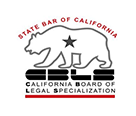A shortage of employment-based immigration visas in California and around the country has led to a surge in outsourcing according to business experts. A report published recently by the immigration services provider Envoy Global reveals that 80% of American companies have outsourced positions because the immigration laws make employing foreign workers so difficult, and 94% of employers would sponsor foreign nationals seeking H-1B work visas if the rules were less restrictive. Employers prefer H-1B visas because a worker who receives one cannot switch jobs unless their new employer files for another H-1B visa within 60 days of hiring them.
Tech layoffs
The shortage of employment-based immigration visas is likely to get worse before it gets better. H-1B visas are most often awarded to workers in the technology sector, which has been turbulent in recent months. Tens of thousands of tech workers have already been laid off in 2023, and more downsizing is expected. This means lawmakers may not be willing give tech companies what they want by increasing the 85,000 annual cap on H-1B visas.
Long-term problem
Politicians are often concerned most about the current news cycle, which sometimes leads them to make decision that are popular today but could cause long-term problems. The number of positions in the technology sector is expected to grow by more than 10% by 2031, and filling those positions could be extremely difficult if the H-1B visa cap is not increased. About half a million foreign workers apply for H-1B visas each year, which means only about 18% of them actually receive one. The outlook is even more grim for foreign workers who want to live and work permanently in the United States because the waiting time for a green card is at least 10 years.
Hot-button issue
Immigration has become a major hot-button issue in American politics, which is why lawmakers are so reluctant to make rule changes that the media could portray as favoring foreign workers over Americans. The economy is changing quickly, and workers in emerging fields will determine how competitive the United States is in the years ahead. This is why many observers feel that the H-1B visa cap should be increased.




